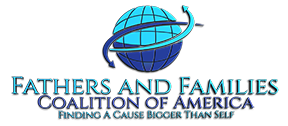Posts
INCREASING USES OF LIFE COACHING
INCREASING USES OF LIFE COACHING
By
Dr. Luisa M. Connal-Rodríguez
In a fast-paced world, people find themselves with the need to adapt to change, but how can we acquire the means of learning to adapt. Business organizations also should plan for the changes within their workplace or ways of doing business. Being out of work requires that we learn to assess our skills and our potentials. Even executives must assess ways of staying on top of their “game”. In other words, the varieties of reasons unique to the organizations and people who want to manage their organizations growth or their personal growth use Life Coaching. Before continuing further, let’s consider a history of Life Coaching from the Kent University.[1] Researchers claim that Life Coaching began with early Greeks i.e. Socrates, who believed that people learned best when they took ownership of their learning and tool personal responsibility for the outcomes. Since from its inception coaching is associated with learning and being responsible for growth of self, it is no wonder that different organizations have looked to coaching as a method of management, as well as personal growth.
The growth of life coaching increased with the growing changes in the economy, and lifestyles led to the development of the interdisciplinary nature of Life Coaching discussed below. Most of us know about coaching only from sports. Coaches in sports have similar characteristics to Life Coaches such as providing goals for the players, pointing out obstacles created by the other team and discussing how to overcome them. Coaches are people who support the needs of people by helping them develop the value of ongoing or life time learning. People who have benefited from life coaching do so because of their increased knowledge and the skills needed to manage and organize changes at work or in their lives. The increased productivity resulting from workers’ involvement with coaches leads many businesses to promote the service to their employees.[2] “There are life coaches for every age group, life stage, ambition, and goal you can imagine. Life coaching is a process and requires the full commitment of the client. Coaches help clients identify blocks, challenges, and opportunities” Joanna Jarosz, M.A., through her review of research condenses the definition of Life Coaching. Life Coaching is an interdisciplinary that has grown exponentially from the 1990s. Life Coaching is a motivational and behavioral change approach that helps people to set and reach better goals, leading to enhanced well-being[i]
An over view of the outcomes for clients include but are not limited to learning to set goals, learning to create outcomes, manage change because these skills will help clients be flexible in managing their live when unexpected events take place. People interested in entering the Life Coaching profession search for opportunities for themselves. To do this, they need to be certified to be life coaches. This is especially true with the completion from those seeking good coaches for themselves or their organization. Therefore, they must also be certified as Life Coaches to build their profession as life coaches. The new blueprint that Fathers & Families Coalition of America-Life Impact, LLC have designed is centered on evidenced based interventions, effective frameworks engaging fathers, exciting experiential learning with proven accredited curricula (Nurturing Fathers) by SAMHSA’s National Registry of Evidence-based Programs and Practices[ii] as well as approval for continuing education (National Fatherhood Practitioner Certificate) from national bodies approving professional development programs by Arizona State University, California Board of Behavioral Health, and National Association of Social Workers integrated with the high fidelity and accredited life-coaching training (Life Impact) The National Fatherhood Life Coach is a comprehensive model that goes beyond training and certification. Forbes Magazine published in several editions that there are big earnings for good Life Coaches. Some can earn as much as a six-figure income. However, all coach training programs are not equal.
Learn More About the Fatherhood Life Coach Certification Here
[1] literacy, kent. edu/coaching/information/research/NHS_/CWPCCoachingEffectiveness.Pdf
[2] http://www.coachuaustralasia.com/become-a-coach/benefits_html
3.http://www.huffingtonpost.com/prema-srinivasan/the-number-one-reason-to-_b_7809724.html
4 International Journal of evidence Based Coaching and Mentoring, Volume 4, Issue 10, Page 34
[ii] http://www.nrepp.samhsa.gov/04e_reviews_program.aspx


